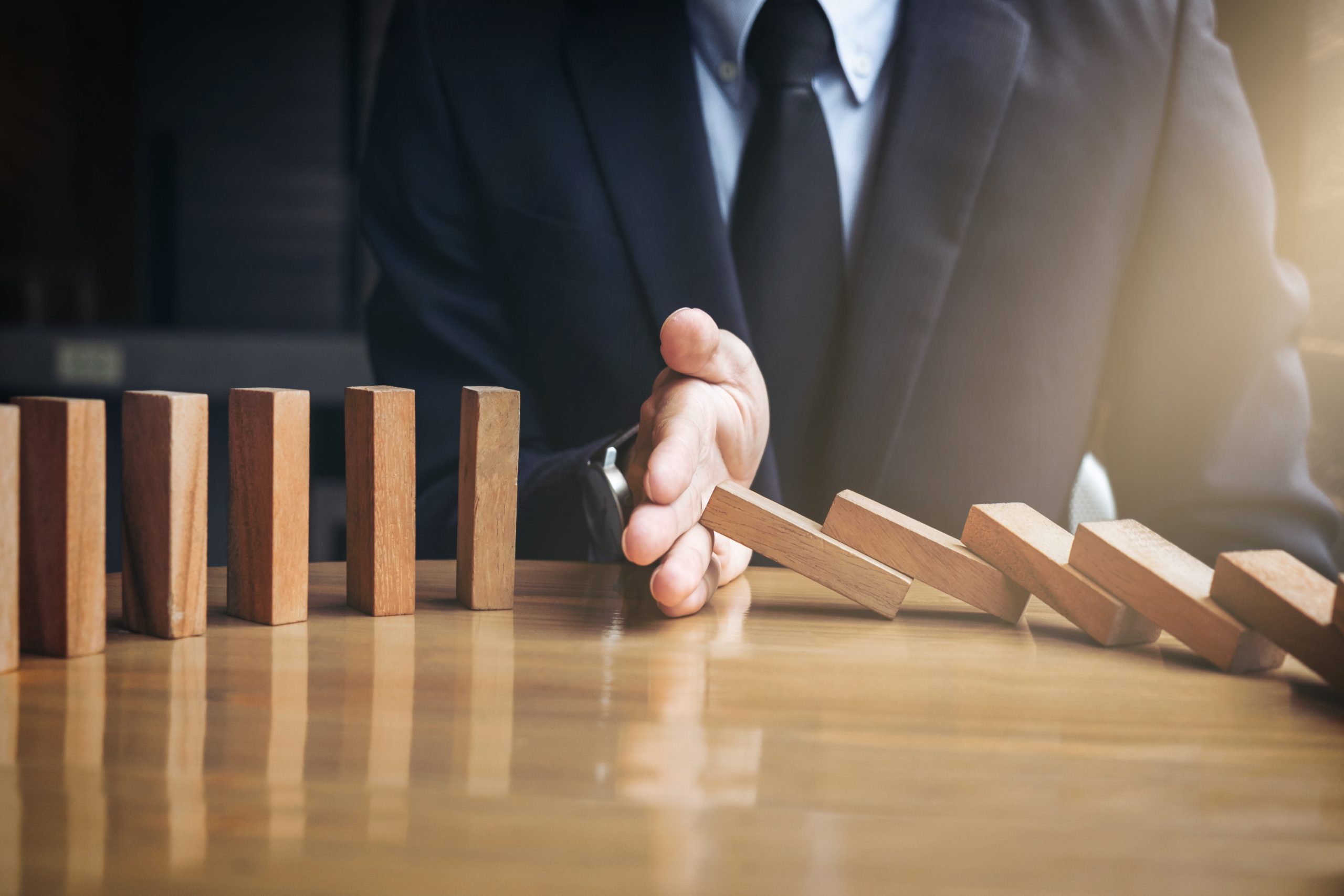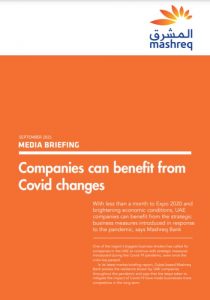Business continuity measures support long-term recovery

The approach to crisis management and greater flexibility to deal with the pandemic can positively shape long-term business plans, says latest briefing from Mashreq Bank
· The UAE economy strengthened significantly in the second quarter of 2021
· Resilience shown by midsized companies provides a strong foundation for a new era for businesses in the UAE
· Experience in crisis management, remote working flexibility, improved work-life balance, higher cybersecurity, and more diversified supply chains have created a new “breed” of post-covid companies
· There is a growing need to plan for sustainable economic recovery
Download the complete media briefing here
UAE, 30 August 2021: Strategic business measures introduced to deal with the Covid-19 pandemic should be retained even beyond the crisis, says senior corporate banking executive in the UAE.
“Greater experience in crisis management, higher flexibility in terms of remote working and improved work-life balance, higher cybersecurity, and more diversified supply chains have created a new “breed” of post-covid companies,” says Hind Salim Eisa, executive vice president and head of services and manufacturing at Mashreq Bank.
Hind Eisa praises the resilience shown by UAE-based companies and says that the steps taken to mitigate the impact of Covid-19 have made businesses more competitive in the long term.
She emphasises this approach for mid-sized companies, which are integral to the UAE’s economy.
“Mid-sized firms in the UAE have faced some of the toughest challenges over the past 18 months,” says Hind Eisa. “As the backbone of the UAE economy, their stability is important
to the nation’s stability. And in many ways, Covid-19 has made them better equipped for crisis management.”
Changes introduced since the start of the pandemic were focused on ensuring business continuity during the crisis, they have put many businesses in a strong position to capitalise on the post-Covid recovery.
Since the onset of the pandemic in March 2020, businesses have made timely and necessary changes to their business processes. From upgrading IT infrastructure to diversifying their supply chains, firms have adopted strategic steps which they can continue to benefit from even in the long-term.
“Certainly, many companies did not have a robust IT infrastructure in place before the pandemic,” says Hind Eisa. “Today, digitalisation has streamlined and simplified operations across the board.”
Positive indicators abound
Stabilising economic conditions in the UAE is shaping a positive outlook for recovery. With less than a month before the launch of Expo 2020 Dubai on 1 October and on the back of successful vaccination drives, business sentiment is improving.
READ: Rate of growth in the UAE’s non-oil private sector reached its strongest level since July 2019
August 2021 saw continued improvement in economic conditions across the UAE’s non-oil private sector, according to data from global market analytics firm IHS Markit.
The seasonally adjusted IHS Markit UAE Purchasing Managers’ Index (PMI), which covers manufacturing and services, rose from 52.2 in June to 54.0 in July and registered 53.8 in August, pointing to stability in business conditions.

“The turnaround in key sectors that form a major part of the UAE’s economy has been remarkable,” says Hind Eisa. “This is a good sign for everyone, and is indicative of better business prospects in the second half of 2021.”
“The lessons learned from the challenges of the past 18 months will pave the way forward,” she says. “As banks, we understand the issues faced by our customers. And we are glad that we were enabled by our regulators to support our clients in times of duress.”
DOWNLOAD THE COMPLETE MEDIA BRIEFING HERE



